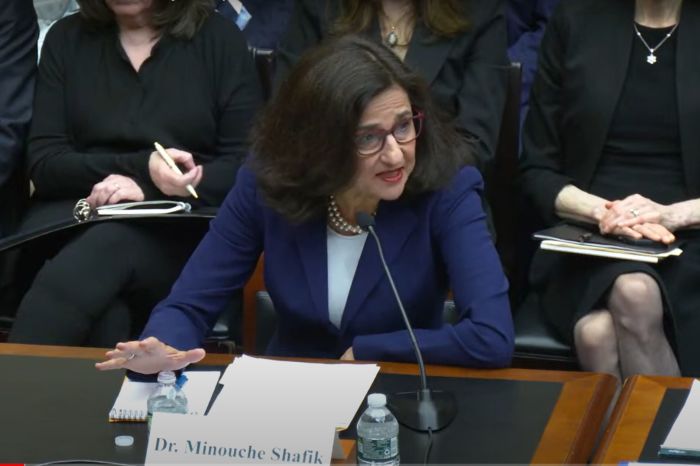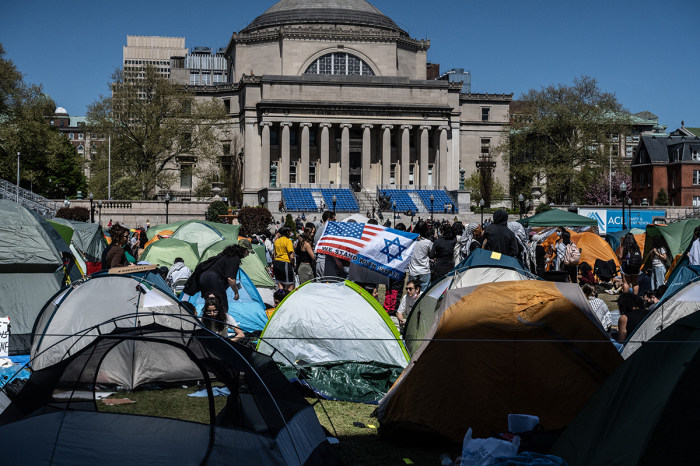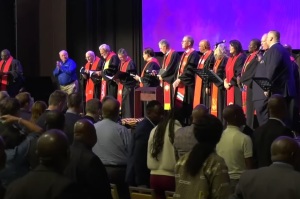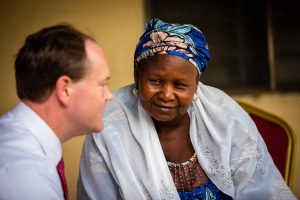Columbia University president resigns amid criticism over Israel-Gaza protests

Columbia University President Minouche Shafik has resigned amid the backlash she received over the handling of antisemitic incidents and anti-Israel encampments on the New York City campus.
In an announcement Wednesday, Shafik said she is resigning "with sadness" amid "a period of turmoil where it has been difficult to overcome divergent views across our community."
"This period has taken a considerable toll on my family, as it has for others in our community," she stated. "Over the summer, I have been able to reflect and have decided that my moving on at this point would best enable Columbia to traverse the challenges ahead."
"I have tried to navigate a path that upholds academic principles and treats everyone with fairness and compassion. It has been distressing — for the community, for me as president and on a personal level — to find myself, colleagues, and students the subject of threats and abuse."
Shafik, who was named the university president in 2023, said she was "optimistic that differences can be overcome through the honest exchange of views, truly listening, and — always — by treating each other with dignity and respect."
"Even as tension, division, and politicization have disrupted our campus over the last year, our core mission and values endure and will continue to guide us in meeting the challenges ahead," she added.

Katrina Armstrong, chief executive officer of Columbia University Irving Medical Center and executive vice president for Health and Biomedical Sciences for Columbia, will serve as interim president.
As with many other public universities in the United States, Columbia has come under scrutiny for how it is handling antisemitic activities on campus amid pro-Palestinian protests and encampments in opposition to the Israeli-Hamas war.
At Columbia, anti-Israel demonstrations and the destructive occupation of Hamilton Hall led federal lawmakers and other onlookers to pressure the school to take decisive action.
Tensions on campus deteriorated to the point Rabbi Elie Buechler, director of the campus' Orthodox Union-Jewish Learning Initiative, told Jewish students in April to avoid the campus and return home "as soon as possible" until conditions improved.
Journalist Neria Kraus shared a video on X in which an undergraduate student said she and the Jewish students were threatened by protestors on campus because one of her friends was wearing a Star of David necklace.
When testifying before the U.S. House Committee on Education and the Workforce in April, Shafik denounced some of the more extreme rhetoric and said the university was taking steps to address antisemitism, such as the creation of a task force and organizing listening sessions for students "on both sides of the issue."
Republican Congresswoman Elise Stefanik of New York took issue with Shafik's response to the campus upheaval, arguing in a letter sent out in April that the Columbia president was engaging in "lax enforcement of policy and clear double standards."
"Your failure to enforce the rules on campus has created an environment in which students and outside agitators know they are able to operate with impunity and without any accountability," the letter stated.
"While the rot is systemic, the responsibility rests squarely on your shoulders. It is time for Columbia University to turn the page on this shameful chapter. This can only be done through the restoration of order and your prompt resignation."
Shafik called police to campus twice to disperse protesters, which led to a faculty no-confidence resolution in May accusing her of violating student rights.
"These offenses culminated in a police action that has harmed our community and our reputation," the resolution states. "For days afterwards, faculty, staff, and students have been locked out of our labs, offices, and libraries. Equally damaging are plans to expel protesters, announced before the disciplinary process has run its course."





























